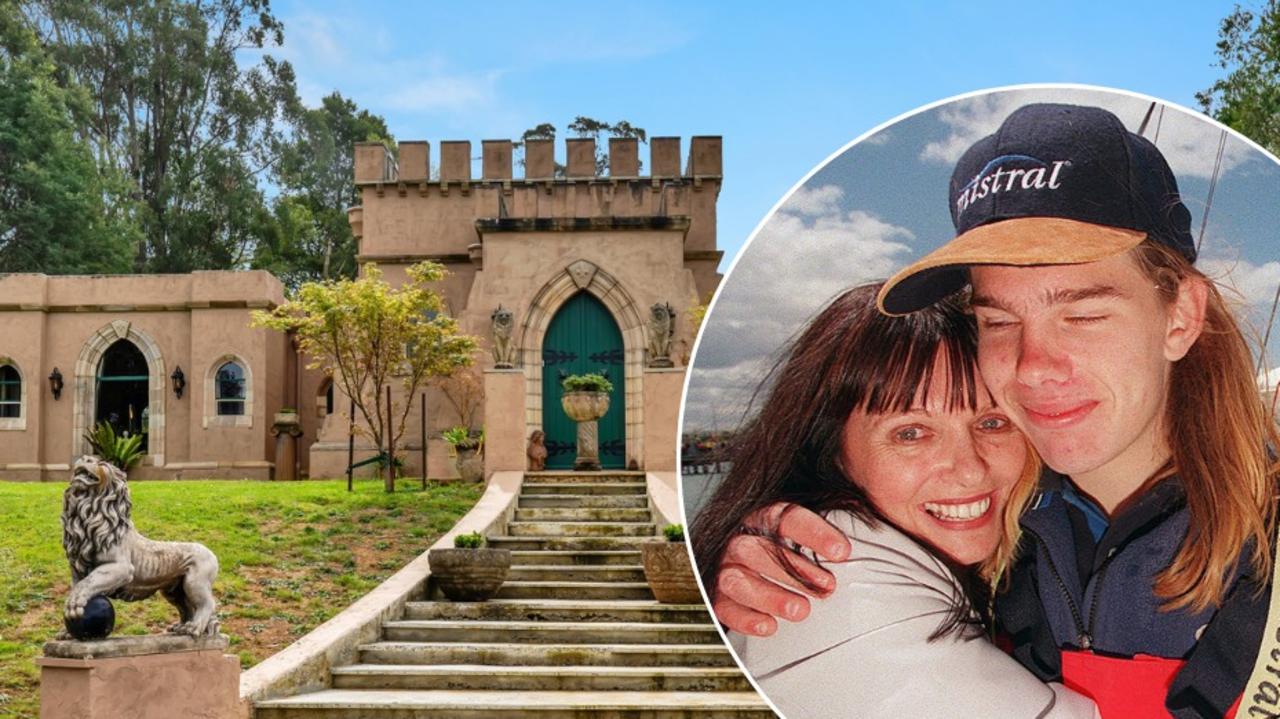Melbourne coffee — what makes it so good, and quietly, is it actually that good anyway?
Melbourne is known as one of the coffee capitals of the world but are our brews worthy of the hype? Here’s what the experts say.
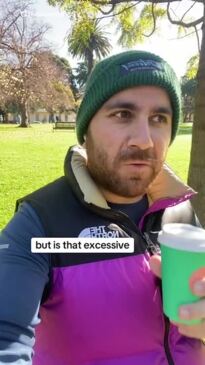
Victoria
Don't miss out on the headlines from Victoria. Followed categories will be added to My News.
Melbourne is known as one of the coffee capitals of the world but are our brews really that good?
Debate erupted over the city’s coffee culture on a recent Reddit thread, where a user pondered how we got our elite coffee reputation, and if it was all due to our water quality – tap water that is, not the Yarra.
“I’ve lived in Melbourne my entire life and always assumed Melbourne’s best coffee title was just due to our cafe culture compared to the rest of the world and rural regions,” the user posted.
“But this year I’ve travelled to a lot of Australia’s major cities for work and can’t believe how much better Melbourne coffee is compared to what I had in other Australian cities.
“The only thing I could think of was Melbourne’s drinking water is making it taste better but surely not. So, does anyone have an actual answer for this?”
We asked some of the city’s top coffee connoisseurs their thoughts.
Why is Melbourne coffee so famous?
Fleur Studd, co-founder and director of Market Lane Coffee, says Melbourne’s love of coffee is rooted in European migration.
“There’s a good reason that Melbourne is often considered the coffee capital of the world,” Ms Studd said.
“We’ve had a vibrant coffee culture here for decades, thanks to the Italian community, who migrated here in the 1950s and brought their love of espresso with them.
“In the last 20 years, our coffee scene has been elevated to another level altogether, thanks to the proliferation of small coffee roasteries and beautiful coffee shops.”
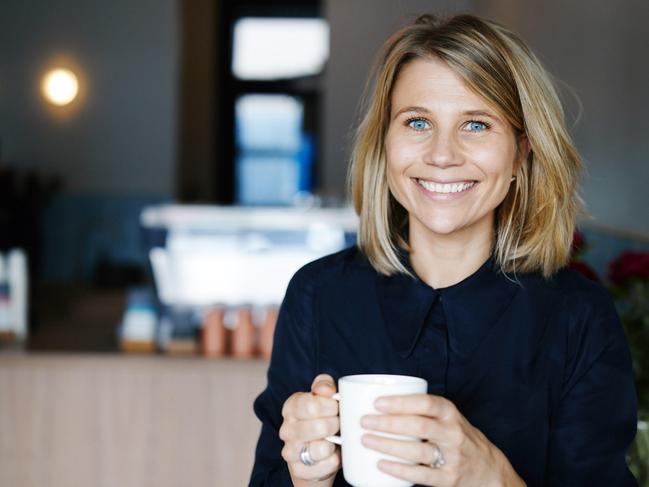
Craig Simon, the founder and director of Criteria Coffee, said Melbourne’s coffee culture started back in the late 1880s when a women’s suffragette group managed to get alcohol consumption after 6pm banned.
“There was then a really significant rise in tea houses, like the Windsor Hotel which was one of the prominent tea houses in Melbourne in the late 1880s,” Mr Simon said.
“So business meetings after 6pm were around tea and coffee and I think that started the culture of congregating around brewed products.
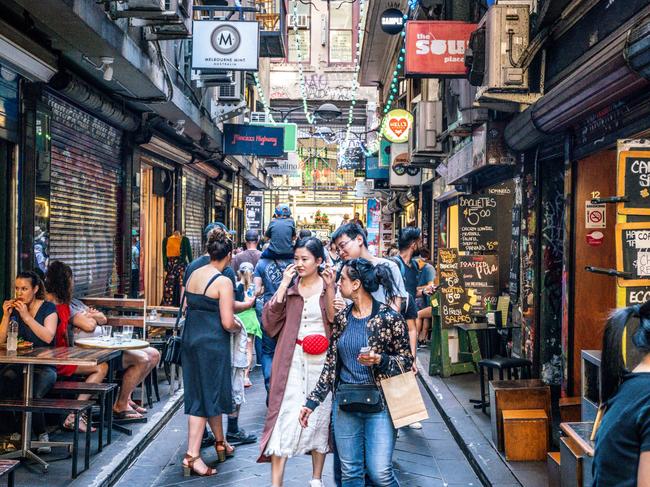
“And then obviously after the wars we had a large influx of European migrants who came from an espresso culture, Italians and Greeks who definitely introduced and brought espresso-based coffee to the forefront.”
Only Hospitality boss Julien Moussi, who runs Inglewood Coffee Roasters, said Melbourne had the best coffee in the world “for sure”.
“I think the biggest thing is we have the most options of great coffee,” he said.
“I think when you go to other places in the world you can still find great coffee but it’s the density (in Melbourne); the amount of venues in a small proximity that serve coffee at such a high standard.”
Is there something in the water?
A far cry from the murky Yarra, Melbourne’s tap water tastes great and according to cafe owners, it helps make a cup of coffee taste even better.
Ms Studd said good water definitely helped make a great coffee.
“We’re lucky that the water in Melbourne makes our job very easy – it’s soft and low in minerals and it tastes delicious straight from the tap.
“Harder water (which you’ll find in cities like Perth and London) requires reverse osmosis to remove contaminants.
“This process is energy-intensive and it’s a balancing act, as it strips all the minerals from the water, so some need to be added back in to make the coffee taste better.
“In Melbourne, we don’t have to do very much to our water in the coffee-making process; at Market Lane, we simply use a carbon cartridge to filter it before brewing.”
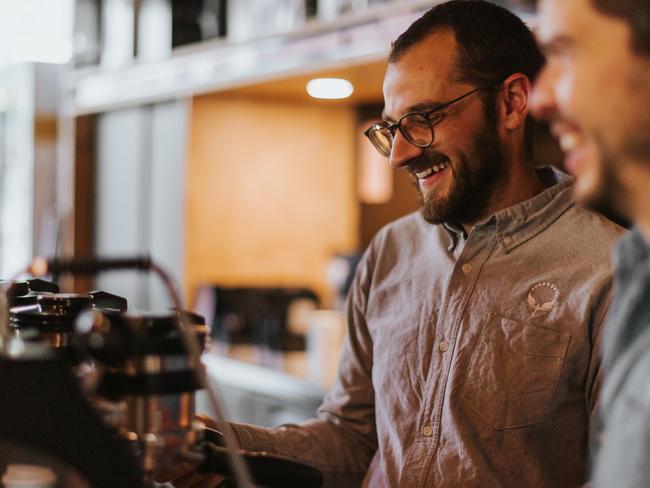
Mr Moussi said Melbourne’s water definitely helped make our coffee taste better.
“In places like Perth where the water quality is so poor even the espresso machines suffer, so water quality is so important to quality extraction and it also affects the health of your coffee machine as well.”
Andrew Gelman, owner of Omar and the Marvellous Coffee Bird in Gardenvale, said Melbourne’s water definitely helped make a good cup of coffee, although his business uses a scuba-tank-like water filter to make it even better.
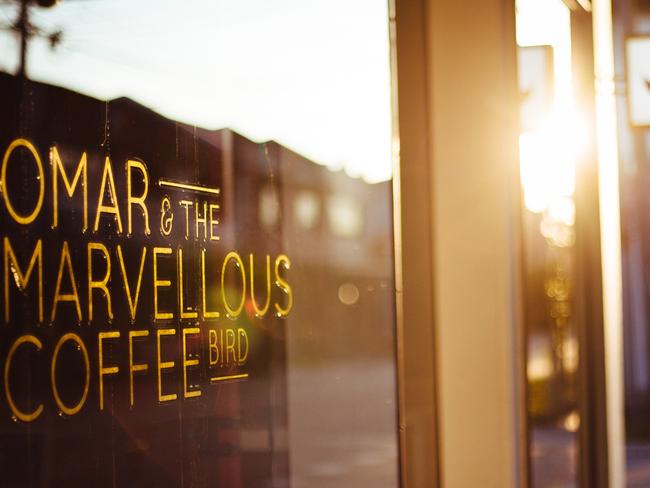
“Melbourne does have good water but it does still have a “chloriney” smell in it so that’s what we get rid of,” he said.
“I’ve travelled around the world with coffee and the water is awful across the world – we are super lucky.”
But Mr Gelman doesn’t believe Melbourne has the best coffee in the world.
“I just don’t think there is a spot that has the best coffee in the world – when we do training we try to get across that there is no “that coffee is better than that one” – it’s which one you prefer.
“Beauty is in the eye of the beholder and it’s down to the individual’s taste.
“Melbourne I think does have some of the best coffee in the world for sure – there is great coffee in Melbourne – but if you didn’t know where to go in Melbourne you’re also more likely to get a shit coffee than a good one because of how many cafes there are.”
Is it all down to the beans and baristas?
Quality beans, great water and a passion for the perfect coffee are the key factors underpinning Melbourne’s elite coffee status, according to owner of The Lorna Group, Josh O’Brien.
When asked about what makes the coffee great in his three Melbourne cafes, Lorna, Maria and Nancy, Mr O’Brien said:
“There’s a few factors, but ultimately it’s about partnering with the right coffee brand, in our case Industry Beans, to provide quality beans that are consistently great. Then you throw in Melbourne’s fantastic water quality and a passionate barista and you have the perfect combination for a great cup of coffee every time.”
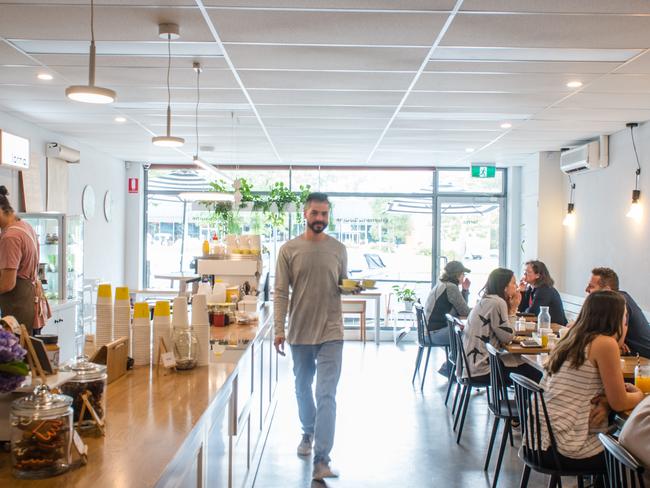
Mr Moussi said in Melbourne, 90 per cent of cafes served great coffee, thanks to owners buying great quality “greens” (raw green coffee beans).
“Everyone is also roasting on state-of-the-art equipment,” he said.
“Also the consistency and quality of baristas in Victoria is so high.
“People used to have to drive an hour across town to find a good place for breakfast or lunch now there’s 100 great places in every suburb.”
Ari Polites, owner of District Brewer Cafe in Bentleigh, said milk was also crucial to delivering a great cup of coffee.
“We get it delivered pretty much daily from a Peninsula dairy that gives us the freshest milk we can get,” he said.
“Our coffee roaster is also an absolute connoisseur and the coffee that he gives us the freshest roasted coffee he can supply.”
Or is it our weather?
The fact Melbourne’s weather is “pretty cold” for nine months a year definitely contributes to our coffee culture, Mr Polites said.
“A lot of the places where people can get a coffee are also really smart looking businesses,” he said.
“So sitting down at a table with a friend to enjoy a coffee especially on a cold Melbourne day helps make the coffee extra special.
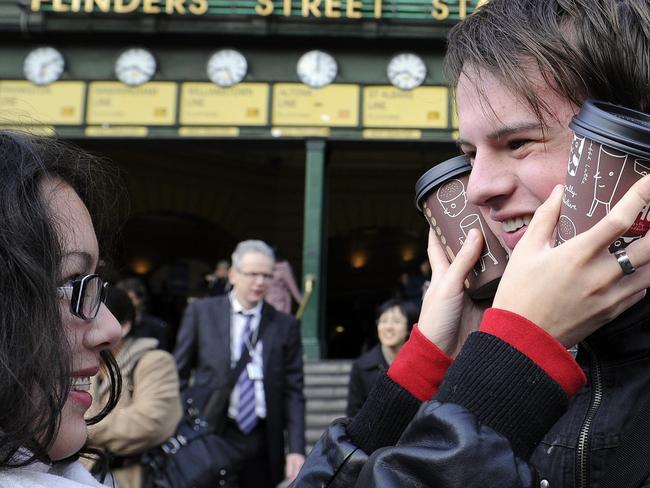
“Different cafes have different energy, some people will sit for hours and I think it’s a great way for people to unwind.
“It’s pretty cold nine months a year in Melbourne, so we get the benefit of the warmth and aroma in a coffee shop and Melbourne has a lot of older buildings which is the perfect setting.”
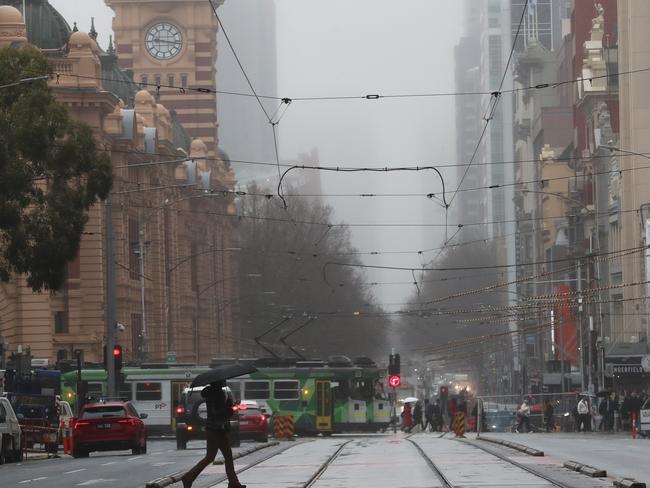
Mr Simon agreed Melbourne’s “pretty average weather” helped drive coffee consumption in the city.
“The culture of going out for a bite to eat and a coffee is quite uniquely Australian,” he said.
“I know we’re now influencing a lot of countries to combine it, but you go to America and very often it’s an espresso bar that’s serving coffee and a restaurant that’s serving food, and the same through Europe.”
How much does an average cup of coffee cost and will it go up?
Picking up a latte in the city will set you back about $4.48, but St Ali boss Lachlan Ward recently told the Herald Sun Australians should be paying $5.50 minimum for a regular flat white, with his South Melbourne cafe already leading the charge by pricing its dine-in flat whites at $6.50.
Popular city coffee spot Vacation currently charges $5 for a small standard regular milk latte, but managing director Jimmy Tjoeng expects he will have to charge more in the future.
Mr Tjoeng said the cost of living was impacting people’s coffee habits.
“The way people drink coffee has evolved – in the past people would go to a cafe, it was a daily routine to go into the office 9-5 and the pattern of getting a coffee every day was there.
“But now with the cost of living, everything has gone up, if they can save on little things they will.
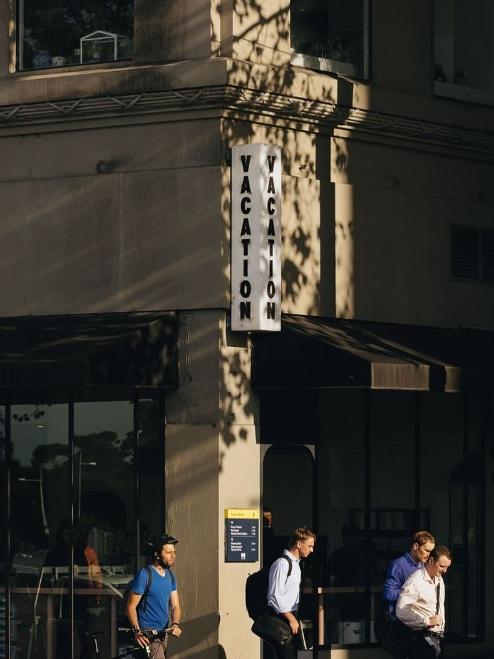
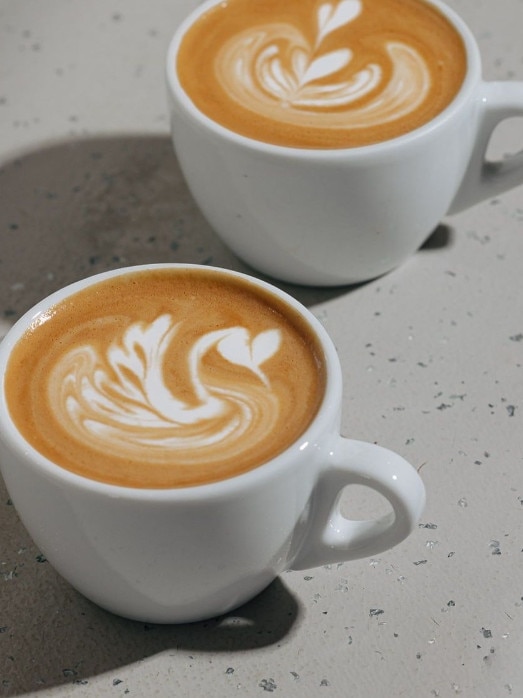
“People look at coffee and still see it as something that should be affordable but they don’t know what other factors that might have contributed to the higher cost of a cup of coffee in a cafe.
“For a speciality coffee quality the green (raw coffee beans) cost per kilo the price used to range from $5 to a maximum of $10.
“Now the $5 mark doesn’t exist anymore, it is $10 minimum up to $14, so that is quite significant.
“Also the cost for labour – when it comes to espresso, the coffee maker or barista plays a big role in making the coffee.”
Are more people making coffee at home?
Mr Moussi said they were definitely seeing an uptick in online sales for the home barista at Inglewood Coffee Roasters.
“There is no doubt if you make a coffee at home it probably only costs you $1,” he said.
“But we’re still seeing really good coffee numbers in venues as well, it may be a fraction down, we’re probably seeing a bit of a lower spend per head at the moment, but the last three months I think it’s trending up again.
“There was a dip over winter with people finding the new normal with interest rates being a lot higher than they were 18 months ago, and I think it just took people time to readjust their budgets and what they could spend.
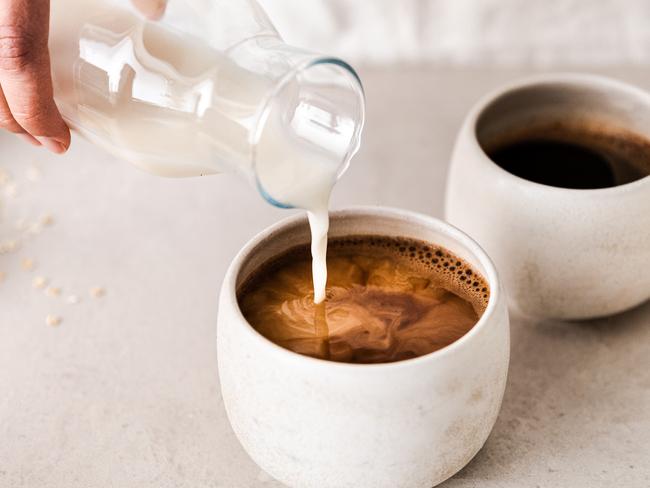
Mr Moussi said the economy was improving and spending was definitely getting better.
“But in saying that, I think there are also some consumers who are thinking about making coffee at home – or having maybe one coffee at home and one coffee in a venue each day.”
But he doesn’t think Melbourne’s cafe culture will ever die.
“People will never give up having coffee out because it's a bit of a community sort of thing, people going out to have coffee with a friend, so I don't think it will ever stop.”
Mr Gelman said when he first started his business in 2010 they were roasting their own coffee in the suburbs which was “a bit of a novelty”.
“Now we’re just so overwhelmed with the amount of coffee companies and cafes in Melbourne – it’s just gone bananas,” he said.
“When we were first setting up we had a mission statement for the cafe which was to get people excited about coffee.
“It was our whole goal – and now people are just way too excited about coffee.
“I feel like it’s mission accomplished.
“Our new mission statement is to get people drinking better coffee wherever they are.
“We’ve opened up a little training room next to our cafe with a focus on the home market.
“We teach people how to make better coffee at home or in the office.”
What is a Melbourne magic coffee?
Melbourne even has its very own coffee style, the magic – described as a stronger brew minus the bitterness and less milk.
Distefano Coffee describes it as a double ristretto that is topped with steamed milk and served in a five-ounce cup.
Where are the best coffee streets in Melbourne?
Melbourne’s laneways and markets are home to some great coffee including Little Rogue behind the blue door on Drewery Lane; Patricia Coffee Brewers and Brother Baba Budan on Little Bourke St; Manchester Press in Rankins Lane; and Dukes Coffee Roasters in Flinders Lane.
Market Lane Coffee can be found at the Queen Vic Market and Prahran Market, while coffee lovers at the South Melbourne Market can choose from several options including hole-in-the-wall cafe Clement Coffee, Padre Coffee and Code Black.
Originally published as Melbourne coffee — what makes it so good, and quietly, is it actually that good anyway?


